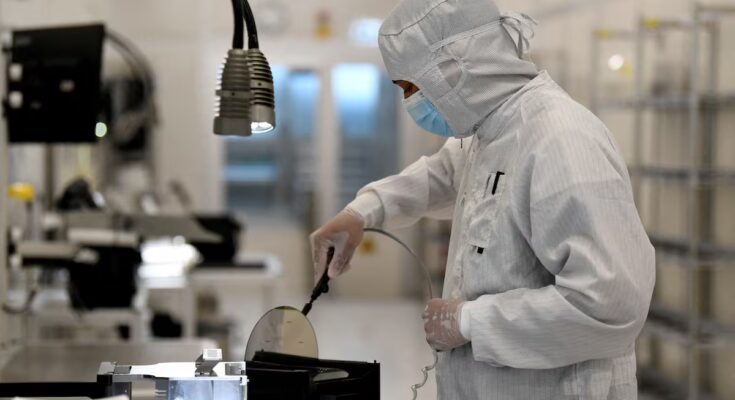The Dutch government on Wednesday announced the suspension of the effective control carried out at the end of September on the Chinese semiconductor manufacturer Nexperia. The interim Minister of Economy, Vincent Karremans, then appealed to national security because he feared that the company’s former Chinese director, Zhang Xuezheng, would improperly transfer technology and knowledge to the Asian giant, undermining the strategic autonomy and security of supply of the Netherlands and the entire European Union. China’s response was a block on chip exports that brought the auto sector to the brink of crisis. Karemans has now changed his position, after consulting European and international partners, followed by “constructive meetings” with the Chinese authorities and as a “demonstration of goodwill”. Although owned by China’s Wingtech Technology, Nexperia is based in the Dutch city of Nijmegen.
In statements released on Wednesday, the minister said that without the lifting of the measure, “the company’s European production would disappear from Europe in the short term.” If this had been the case, “Nexperia’s latest knowledge, experience and capabilities in Europe would have been lost, to the detriment of the resilience of the Dutch and European economy”, he assured. It now wants to take a “constructive step” after negotiations held earlier this week in China. The end of controls also eases trade tensions between the Old Continent and Beijing.
Nexperia was part of NXP, a Dutch company, until its acquisition in 2019 by Wingtech. The factories it has in Europe produce only semi-finished products, which must be processed in China for use by the global automotive and consumer electronics industries. Its shortages following the controversy have not only threatened automotive supply chains and delayed production. The conflict has also highlighted the asymmetric relationship between the EU and China at a time of major trade tensions that complicate supplies to strategic industries.
Under now suspended government control, Nexperia could no longer make important decisions without the consent of the Dutch authorities. According to the so-called Asset Availability Law of 1952, applied for the first time, even decisions made within the Chinese company could be revoked.
The Netherlands intervened in September to prevent the Chinese company’s finished and semi-finished products from becoming unavailable to Europe in an emergency. The authorities had perceived “a threat to the continuity of crucial knowledge and technological capabilities on Dutch and European territory,” according to the statement published by the Executive on Wednesday.
The note, which includes the letter sent by Minister Karremans to Congress, now expresses optimism “about the measures already taken by the Chinese authorities to guarantee the supply of chips to Europe and the rest of the world”. In light of the new developments, Karremans notes that “the Netherlands felt that it was the right time to take a constructive step and suspend the order under the Transfer of Assets Act.” It is not yet clear who will regain control of operations.
The general director of Nexperia in Nijmegen, Zhang Xuezheng, has been suspended from his duties by the Chamber of Commerce of the Court of Appeal in Amsterdam, and the executive also emphasizes on its official website that “in the independent opinion of the court, there were sufficient reasons to doubt the good governance and appropriate business conduct of Nexperia”. It was accused of improperly transferring knowledge to China, “and signals from Nexperia indicated that there was a threat to the continuity of crucial knowledge and technological capabilities on Dutch and European territory.”
In response, Beijing temporarily banned chip exports from the Nexperia factory in Dongguan, causing production problems for European automakers and suppliers. The ban was then temporarily lifted and the company was once again able to supply them worldwide for civilian use.
Both the Netherlands and the EU are committed to strengthening the European semiconductor sector. This means supporting strategic companies, strengthening supply chains and critical technology sectors. This is part of the objectives of the European Semiconductor Coalition, an initiative launched in March 2025 and integrating the 27 member states.
The suspension of control of Nexperia does not mean that the measure has been completely revoked. Karremans said he was confident China would inform him of any plans to move production or expertise out of the Netherlands, but could reapply the lifted measure if decisions made by the company jeopardized chip production.



